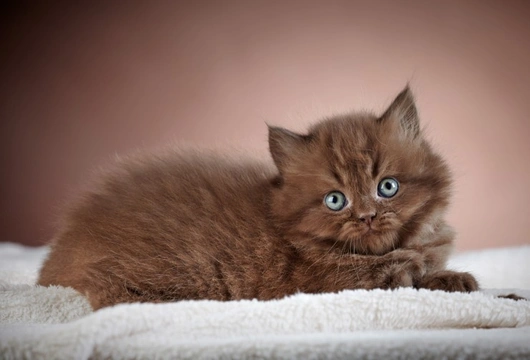
How a kitten’s personality is formed before they are old enough to go to their new homes
When you first buy or adopt a new kitten, part of the joy and excitement of the whole process is waiting to see what sort of temperament and personality the kitten develops as they get older, as you begin to learn what interests them, what they like and dislike, and how they are likely to behave as they grow up.
The first year of the kitten’s life is a very formative time, with your young cat going through both physical changes, changes due to neutering, and all of the learning and development that happens as your cat gets closer to adulthood-but a lot of their future traits and personality will already have been influenced by their experiences before they even came to live with you, and some of that begins in the womb-and even before!
In this article, we will look at the various different factors that influence the personality and temperament of a kitten before they even go off to their new forever homes. Read on to learn more.
Before conception
Some of the factors that influence kitten development and all of their traits can actually become established before the kittens are even conceived at all! If the queen is well nourished, contented and secure prior to conception, her kittens will have the best possible start in life-but if the queen is poorly nourished, does not have a home, or is not used to people, these things can all have an effect, both on the physical development of the kitten in the womb before they are born, and also, on their personality.
A queen that is anxious, nervous or that has to struggle to find food will not be able to concentrate on the process of simply being pregnant, and all of these factors can have an effect on the condition of the kittens when they are born, and sometimes, leave them with some catching up to do.
During gestation
The experiences of the queen during pregnancy are closely connected of course to the litter that she is carrying, and fear, anxiety or stress during this time will all be communicated to the kittens in the womb too. A happy cat that is comfortable, well fed and confident around people will pass all of these things onto her kittens.
The temperament of the queen
The temperament of the queen has a marked effect on the kittens, both in terms of the heredity of such traits and also, because they will pick up on their mother’s mood very quickly as well.
If the queen is grumpy or unfriendly, she will soon transfer these traits to her kittens-and particularly in the case of feral or not very tame cats, an innate distrust or fear of humans will be something that she will pass onto her litter, and this makes early socialisation with people very important for the kittens, to try to counteract this effect.
Additionally, other temperament and personality traits displayed by the queen will be passed onto the kittens to a lesser or greater extent too-for instance, if the queen is a keen hunter, her kittens will likely inherit this trait and also pick it up from the queen’s behaviour.
Queens that love attention from people and like to spend a lot of time with them will also pass these things onto their kittens as well, and this of course makes for a good start for a future life with humans!
First experiences with people
The kittens’ first experiences with people will go on to set the tone for their future expectations, which is why handling kittens from as early an age as possible is so important. Hopefully, the kittens will learn from the mood and behaviour of their queen that people are not a threat and can be a source of good things, but even for kittens born to a less tame queen can begin to learn all of these things the right way by means of care and handling when young.
Learning from the litter
Kittens learn an awful lot from their littermates too, and when one kitten learns a new skill or finds something to entertain themselves with, the other kittens will be likely to pick it up quickly too! This can apply to things like hunting behaviour, being bold around people, finding things to play with, grooming themselves, and moving onto solid food!
Kittens also start to learn the basics of being a cat and dealing with other cats, such as not to bite and avoid being bitten, and how to communicate, show affection, and know when to leave another cat alone!
Food and preferences
Kittens will also begin to develop a taste for certain things, and begin to find out their own likes and dislikes when young too-for instance, if the mother cat is mad for tuna, it is likely that this will then become the favoured treat for her litter as well!
It is of course entirely possible to change foods without a problem, but the tastes, quality and experiences that kittens pick up when young will also have something of an effect on the rest of their lives too.



